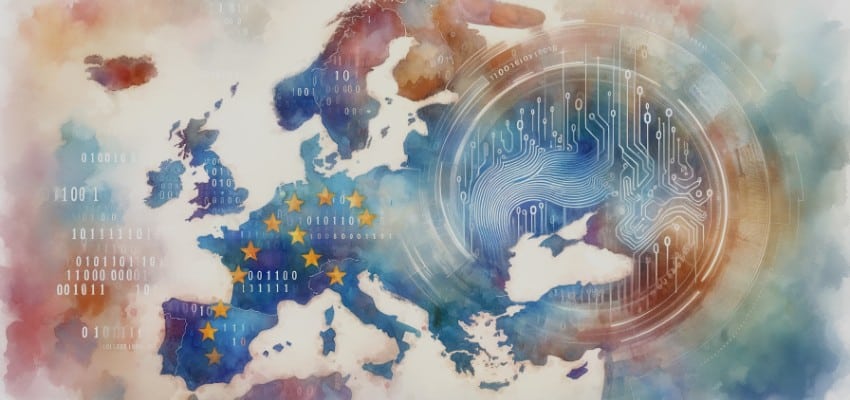Editor’s Note: This article highlights the European Union’s groundbreaking shift towards digital identity management through the implementation of the eIDAS2 Regulation, presenting a significant development for cybersecurity, information governance, and eDiscovery professionals. It underscores the EU’s efforts to establish a secure and user-controlled digital identity wallet, contrasting sharply with the current models driven by tech giants in the United States. The article also highlights Apple’s recent commitments in response to EU antitrust charges, indicating a broader trend towards more open and competitive technology practices. Additionally, it touches on the EU’s initiatives to combat money laundering within the cryptocurrency sector. For professionals in the relevant fields, understanding these developments is essential as they signal a major change in the landscape of digital identity verification, privacy, and online interaction.
Content Assessment: EU Spearheads Digital Identity Transformation Amidst Global Tech Competition
Information - 92%
Insight - 90%
Relevance - 88%
Objectivity - 92%
Authority - 91%
91%
Excellent
A short percentage-based assessment of the qualitative benefit expressed as a percentage of positive reception of the recent article from ComplexDiscovery OÜ, titled, "EU Spearheads Digital Identity Transformation Amidst Global Tech Competition."
Industry News – Digital Residency Beat
EU Spearheads Digital Identity Transformation Amidst Global Tech Competition
ComplexDiscovery Staff
In a landmark shakeup of personal identity verification, the European Union is set to revolutionize the way its citizens will interact in the digital space. At the forefront of this transformation is the Electronic Identification, Authentication and Trust Services (eIDAS2) Regulation, designed to replace conventional authentication methods with a digital identity wallet, allowing EU citizens to engage with services online with unprecedented security and control over their personal data.
According to Ignacio Alamillo-Domingo, a key advisor at Logalty and partner at the Digital Credentials for Europe (DC4EU) consortium, this digital wallet represents “a super app on your mobile phone that allows users to share their identification with the highest level of trust.” The legislation mandates acceptance of the digital wallet across various platforms and is a departure from the dominant model in the US where conglomerates like Google, Facebook, and Apple wield considerable control over personal identification data.
Alamillo highlights that “the new European Digital Identity Wallets will enable all Europeans to access services online without having to use private identification methods or unnecessarily sharing personal data.” The ideological divide between the EU’s forthcoming legislation and the existing American system points to varying approaches to digital identity and privacy in different parts of the world.
The EU’s initiative comes parallel to Apple’s attempts to appease EU antitrust charges by offering a set of commitments aimed at opening up NFC (Near Field Communication) payment technology on iOS devices to third-party developers. This move aims to curtail the iPhone maker’s dominance within its mobile ecosystem, countering previous allegations of limiting contactless payment support exclusively to Apple Pay.
Apple’s proposed adaptations, intended to be valid for a decade, will provide competitors with API access and essential functionalities like “defaulting of preferred payment apps,” noted for review by the European Commission. Should Apple falter on these commitments, they could face a hefty fine, potentially up to 10% of their worldwide turnover, setting a staunch precedent for technological giants to prioritize fair competition practices.
The push for digital privacy and fair competition in technology is also reflected in the EU’s recent provisional deal to combat money laundering more effectively within the crypto sector. Strengthening surveillance and requiring cryptoasset service providers to report suspicious activities addresses the anonymous nature of cryptocurrency transactions, aiming to shore up financial integrity.
While the EU takes definitive steps towards a secure digital economy, questions about the technical infrastructure underpinning such implementations remain, namely the debate between utilizing blockchain technology or traditional Public Key Infrastructure (PKI). Alamillo voices concerns over scalability with PKI, stating that “blockchain is a pain point” and advocating for its use to manage a decentralized array of issuers.
As regulatory pieces begin to fit into place, the EU is positioning itself at the spearhead of the digital economy. From safeguarding personal identification and promoting competitive practices to intensifying anti-money laundering measures, the bloc is constructing an expansive digital framework that extends beyond its borders, setting a new standard for secure and equitable online engagement.
News Sources
- The EU Lays The Techno-Legal Tracks For Its Rising Digital Ecosystem
- Apple offers EU set of pledges aimed at settling Apple Pay antitrust probe
- Apple offers to open mobile payments tech in the EU
- Tougher EU money laundering rules target crypto and oligarchs”favourite toys’
Assisted by GAI and LLM Technologies
Additional Reading
- The Transfer of Wealth in eDiscovery: Q4 2023’s M&A Activities
- The Paradox of Equity: Analyzing the Equitable Facade of Private Equity
Source: ComplexDiscovery


























